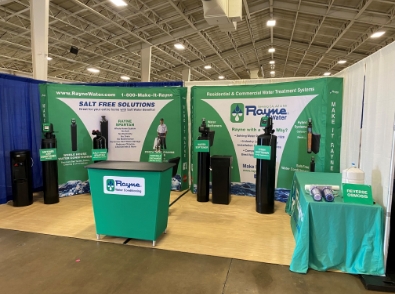
Answer a few questions and find the perfect product for your needs.
Start questionnaire
Answer a few questions and find the perfect product for your needs.
Start questionnaire
Answer a few questions and find the perfect product for your needs.
Start questionnaireAuthor: Ken Christopher | 3 min read | Aug 23, 2025
Limescale buildup can be a significant problem for homeowners and businesses alike. It doesn’t just sully your appliances but can lead to reduced efficiency and costly repairs. Understanding how to prevent limescale in appliances is crucial for maintaining their longevity and ensuring optimal performance.
Limescale is a calcium carbonate deposit formed when hard water evaporates, leaving behind mineral deposits. Appliances like dishwashers, kettles, and water heaters are particularly susceptible to limescale due to their constant exposure to heated water. Here’s how you can combat this issue effectively:
One of the most effective methods for preventing limescale is using water softener systems. These systems replace calcium and magnesium ions in hard water with sodium ions, significantly reducing the likelihood of buildup.
Using a whole house water filter system can also help. These filters can remove impurities and minerals that contribute to limescale formation.
For drinking water, a reverse osmosis drinking water system efficiently reduces limescale-forming minerals. This system purifies water by pushing it through a semipermeable membrane, hence reducing the overall mineral content.
In addition to preventative measures, regular maintenance is crucial for controlling limescale.
Alkaline water systems can also indirectly reduce limescale buildup. While these systems primarily enhance water pH, they also help in reducing some mineral content, benefiting appliance longevity.
How can I remove hard water buildup?
To remove hard water buildup, you can use a mixture of vinegar and water. For tougher limescale, consider purchasing a commercial descaling agent.
What is the best water softener for hard water?
The best water softener for hard water will depend on your water usage and household size. Compact water softeners are ideal for smaller homes, while whole house systems are better for larger households.
Which is better, salt vs. salt-free water softener?
Salt water softeners typically remove minerals more effectively, while salt-free options condition the water without additional sodium. Your choice should align with your household needs and health concerns.
Implementing these solutions will help you prevent limescale in appliances, keeping them running efficiently for years to come. Whether you opt for a portable exchange soft water service or a comprehensive water filtration system installation near me, investing in a quality water treatment system pays off in the long run.
For more information on our products, check out our water softener systems and reverse osmosis drinking water systems. Explore additional solutions with our bottleless water cooler options for the office.
By understanding the causes and solutions for limescale buildup, you can protect your home and appliances, ensuring they remain efficient and reliable.
Ken Christopher is the Senior Vice President for Rayne Dealership Corporation. As a seasoned executive with over 20 years of leadership experience, he’s helped scale…
Subscribe our newsletter to receive the latest news and exclusive offers every week. No spam.